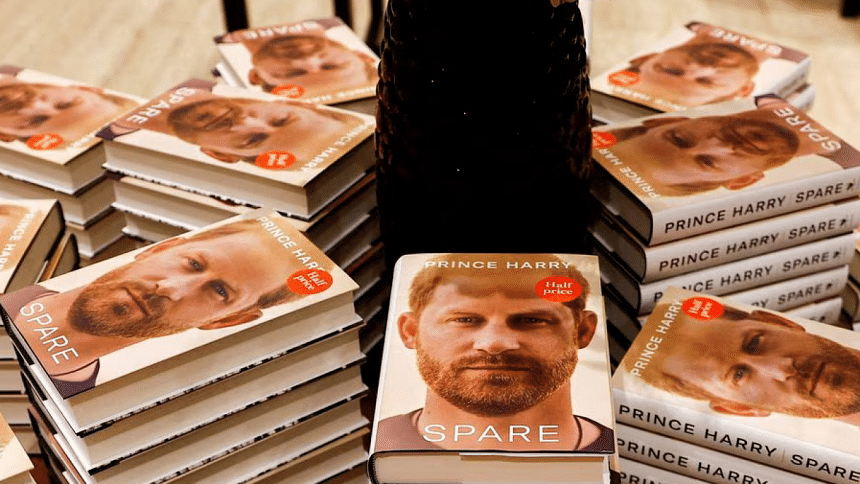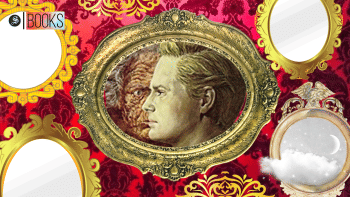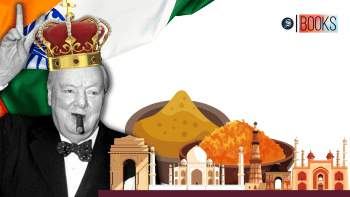On Prince Harry's memoir: Spare us the drivel, please

Fighting through Prince Harry's memoir Spare, one is tempted, after each paragraph, to call it quits. You can only endure so much, but perhaps it is self-hatred or the morbid curiosity of how worse can it get that had me waging on. If anything, I wanted to know as a fellow human the extent of the prince's pains. Under all the decorative glitz and glamour, he is apparently just like us, as he so convincingly tries to tell: he relates to Stewie from Family Guy. He doesn't read books. Though somehow, in Eton and later at Sandhurst, he clearly has done it through the hard work of never hitting the books, as he claims. He does his own shopping and laundry, and even though every year he "receive[s] from Pa an official clothing allowance", those are just for "suits and ties, ceremonial outfits." Truly, he is just like us.
Harry's dig at the paparazzi is the underlying theme of his life-story. It is them that the book vilifies. And perhaps it is not that wrong to do so. The tabloids are not saints after all and do deserve criticism for all their law-breaking and immorality.
Yet, Harry's appeals for us to join him in condemning these "ghouls" of the media are not reassuring. For a hundred or so pages, he rallies against the lies and trickery of the paparazzi (Paps, as he calls them) and tells us how a pap tried to blackmail him by terming him an addict. One almost starts to sympathise with the innocent prince until the next page when he casually reveals, "Of course…I had been doing cocaine around this time."
Such is his antipathy with the tabloids that, at one point, he describes them as "emboldened, more radicalised, just as young men in Iraq had been radicalised. Their mullahs were editors…" Surely, equating journalists (even the lowliest entertainment correspondents) with "radicals" is absurd, let alone the baseness of his worldview that comes to light through this uninformed comparison.
Harry is unambiguous. The paps have killed his mother, the Princess Diana. The paps have ruined his childhood, his relationships, and now they are hell-bent on ruining his marriage with Meghan Markle. The Royal family is too scared of fighting back, too used to the parasitical tabloids that bring them relevance as much as intrigue. But it is hard to understand Prince Harry's direction with his memoir. He rallies against the Paps' crude caricature of him being "lazy" and "thicko" and then proceeds to write pages upon pages on himself going to clubs and parties. He hates it that no one understands him to be the thoughtful, intelligent person he is but then, almost without thought, writes about how he dressed up as a Nazi for Halloween or called a fellow soldier "a Paki." Both events did end up with him apologising, but one wonders to what extent he is the kind of person he is marketing himself as.
Because, if we're honest, this is just that: marketing. Harry, therefore, must walk a fine line. He is the rebel Prince, but a Prince nevertheless. He is not against the monarchy (he goes ahead and even writes a high school level defence of the institution in one chapter). He writes of being impressed with the work-ethic of his father and grandfather. These princes, of course, do labour away night and day with their ribbon-cutting and handshaking.
Two-thirds of the book in, Meghan arrives and Harry is smitten with her. Understandably, she is described through-out as an angel, to the point where one wonders if she is human at all. Harry, bless his heart, feels insecure because Meghan is cultured. She reads books. She has read Eat, Pray, Love, he says. Isn't she great?
Finding Meghan completes Harry. He may be the spare to William as heir, but he need not be sad any longer. He will have his own family. The little brother syndrome he undergoes all throughout the book, finally, does not matter anymore. But the Paps! They are to ruin him again.
But Harry makes it hard for us to take him seriously when he treats Meghan and Kate rowing over lipstick as a monumental event, or when he worries over his livelihood and in the same breath casually mentions reaching out to Rihanna, Tom Hardy, or Tyler Perry, something the common man would also relate with.
After Harry and Meghan, married with a child, are cut out of their allowance by the Prince of Wales, Harry, frustrated, starts to make sense: "After decades of being rigorously and systematically infantilized, I was now abruptly abandoned, and mocked for being immature?" It is the only time one genuinely gets him.
It is not hard to see that Harry's problems will never go away until he stops being royalty for good. He may be a literal prince but he cannot have everything he wants. Commenting on an essayist comparing the Royals to Pandas, he says "I knew as a soldier, that turning people into animals, into non-people, is the first step to mistreating them, in destroying them." But is the Prince ready to admit that one prevents this not by complaining or changing one's terms of service, but through ending, completely, the institution he belongs to and hates?
Shahriar Shaams has written & translated for SUSPECT, Adda, Six Seasons Review, Arts & Letters, and Jamini. Find him on twitter @shahriarshaams.

 For all latest news, follow The Daily Star's Google News channel.
For all latest news, follow The Daily Star's Google News channel. 






Comments